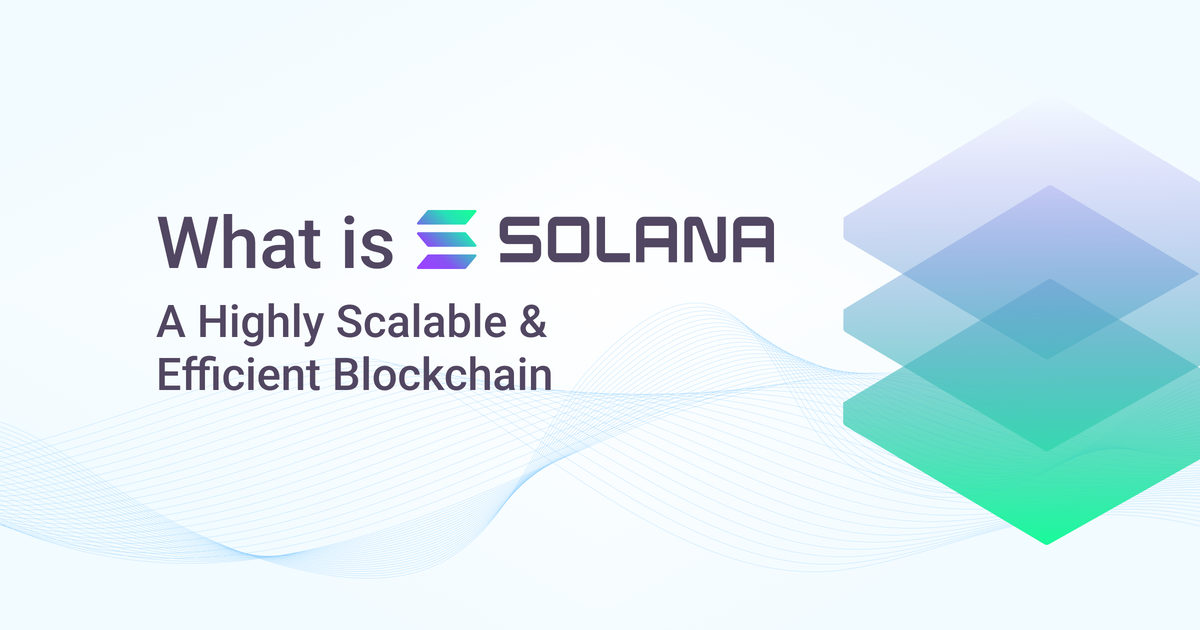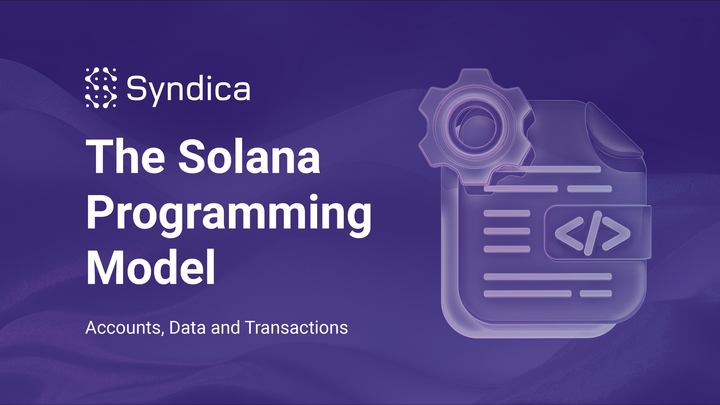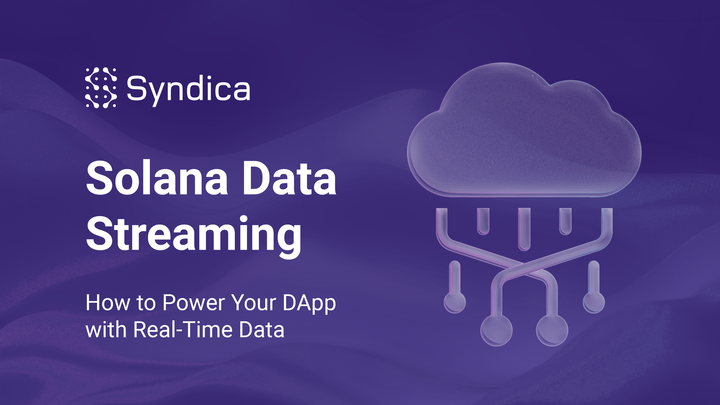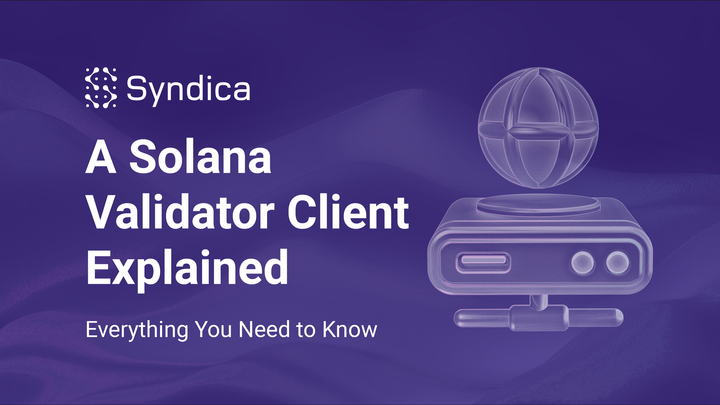What is Solana?
Solana is an open-source blockchain network that hosts highly scalable decentralized applications (DApps).

A Highly Scalable & Efficient Blockchain
Solana is an open-source blockchain network that hosts highly scalable decentralized applications (DApps). It was founded in 2018 by Anatoly Yakovenko and others with the goal of addressing the scalability and speed limitations of existing blockchain networks like Bitcoin and Ethereum.
Overview of Solana
Solana utilizes a unique combination of technologies to achieve high transaction throughput and low latency. One of the key technologies is the Proof of History (PoH) consensus mechanism. PoH provides a verifiable and time-stamped record of all transactions, allowing Solana to order and process transactions in a parallel and efficient manner.
How Does Solana's Proof of History (PoH) Consensus Mechanism Work?
Solana's Proof of History (PoH) algorithm incorporates time into the blockchain, reducing the load on network nodes while processing blocks. For blockchains, gaining consensus on the time a block was mined is just as important as getting consensus on the transactions in that block. Solana's PoH achieves this by providing a way to cryptographically prove the passage of time and where events fall in that timeline.
The PoH algorithm uses a verifiable delay function (VDF) to hash incoming events, creating a time-stamped record. This record is then used to order and validate transactions. Unlike other blockchains that rely on outside programs or centralized sources for timestamping, Solana's PoH allows timestamps to be built directly into the blockchain itself. This eliminates the need for external sources and ensures the accuracy and integrity of the timestamped data.
Key Features and Advantages
Solana offers several key features and advantages that make it stand out among other blockchains:
1. Scalability: Solana's architecture is designed to support high transaction throughput, potentially handling tens of thousands of transactions per second (TPS). This high scalability makes it suitable for applications that require fast and efficient processing.
2. Low transaction costs: Solana aims to provide low transaction fees, making it cost-effective for users and developers. By leveraging its scalable infrastructure and efficient consensus mechanism, Solana can process a large number of transactions at a fraction of the cost compared to other blockchains.
- Instead of a global fee market used on Ethereum, (since Solana defines the state in which programs are used) Solana is able to utilize state-localized fee markets, where protocols that cause congestion (e.g. a popular NFT mint) require a higher fee, but the rest of the network maintains a stable fee (See Figure 2. of the Visa article).
3. Fast confirmation times: Solana's innovative Proof-of-History (PoH) algorithm and parallel transaction processing enable fast confirmation times. Transactions are processed and confirmed almost instantly, reducing the waiting period for users and providing a seamless and efficient user experience.
4. Developer-friendly environment: Solana provides a developer-friendly environment with a robust set of tools, libraries, and documentation. It supports multiple programming languages, including Rust, C, C++, and Python making it accessible to a wide range of developers. This developer-friendly approach contributes to the growth of the Solana ecosystem and encourages innovation.
5. Vibrant ecosystem and community: Solana has a rapidly growing ecosystem and a vibrant community of developers, projects, and users. This ecosystem offers opportunities for collaboration, innovation, and support, making Solana an attractive choice for developers looking to build on a thriving network.
Comparison With Other Blockchains
When comparing Solana with other blockchains, its scalability and speed stand out. Solana's high transaction throughput and fast confirmation times position it as a viable alternative for applications that require fast and efficient transaction processing. Compared to popular blockchains like Ethereum, Solana's low transaction costs make it more cost-effective for developers and users, particularly for applications that involve frequent transactions or require microtransactions.
An example is state compression of NFTs which is only possible on Solana. This approach entails generating a cryptographic hash of data that exists off the blockchain, which is then stored on the blockchain to ensure secure verification. State compression brings down the cost of minting Solana NFTs to mere cents on the dollar which can then be used in many real-world implementations such as event ticketing, hotspot or server ownership, digital assets for metaverse or gaming projects, enterprise supply chain data, and even public health records.
Another difference lies in the computational powerhouse, Ethereum runs on the Ethereum Virtual Machine (EVM) whereas Solana runs on the Solana Virtual Machine (SVM). The SVM is the operational realm responsible for handling transactions and executing smart contracts/programs within the Solana network. The EVM is conceptually similar for Ethereum and oversees the blockchain's state and facilitates smart contracts' operational capabilities. In terms of programming languages, Solana uses Rust, while Ethereum uses Solidity. This difference in programming languages may influence developers' preferences and the types of applications they choose to build.
Projects on Solana
Solana has several notable projects and use cases that demonstrate the practical application of its key features and advantages.
Star Atlas
Star Atlas: Star Atlas is a futuristic, high-quality play-to-earn MMORPG (massively multiplayer online role-playing game) situated in a metaverse-style virtual world, blending space exploration, territorial conquest, and political dynamics. Built on Solana and Unreal Engine 5, it features NFT-based assets, a digital galactic economy, and a decentralized autonomous organizational structure, offering players an immersive gaming experience with the potential for ownership and trading of in-game assets.
Sniper
Sniper: Sniper is an advanced Solana-based all-in-one NFT analytics and trading marketplace that offers instantaneous updates, market analysis, and portfolio management. The platform offers automated order execution, real-time data, and some of the fastest execution speeds on Solana.
Audius
Audius: Audius is a decentralized music streaming platform on Solana that is artist-controlled and owned by a community, where musicians can share, monetize, and distribute their music directly to fans. Audius eliminates intermediaries, offers customizable monetization options, and rewards users with its native cryptocurrency token, AUDIO, for participation and governance. The project aims to revolutionize the music industry by providing a direct connection between artists and fans while enabling the creation of unique apps and incentivizing engagement within its vibrant global community.
All of these projects use Syndica to read and write data to the blockchain and power their RPC (remote procedure call) infrastructure.
Syndica empowers principal enterprises and architects advancing the Solana ecosystem. In building the Cloud of Web3, we provide best-in-class RPC node infrastructure, Developer APIs, a robust end-to-end platform, and the next cutting-edge Solana client validator, ‘Sig’, written in Zig. Our team offers the dedicated support, reliability, and user-focused orientation for seamless integration with Solana allowing you to focus solely on building your enterprise.
Power your enterprise using Syndica. Get started quickly today for free at www.syndica.io and check out our documentation here.



